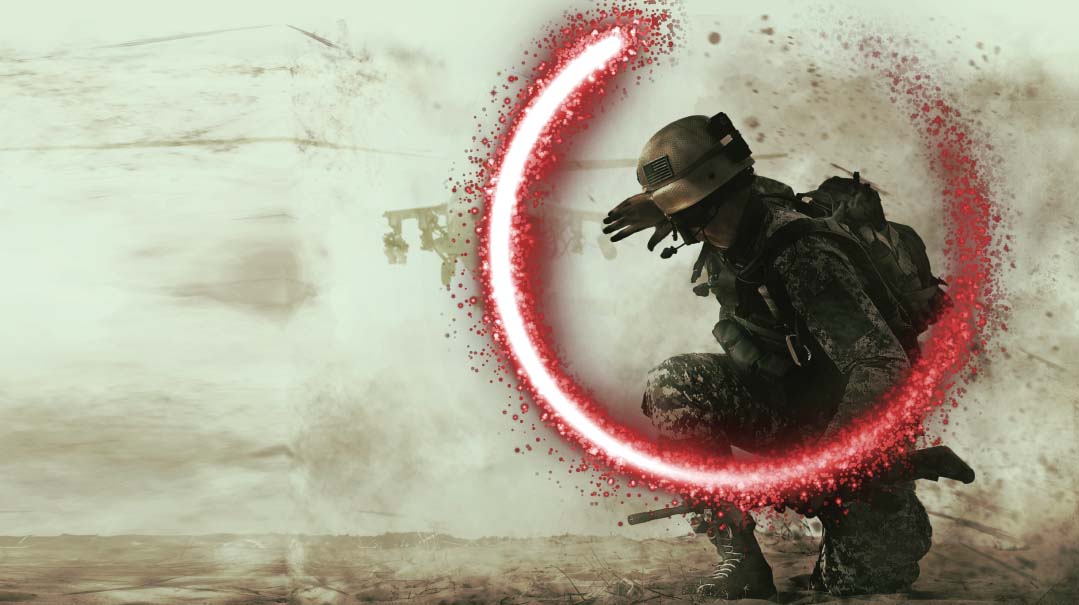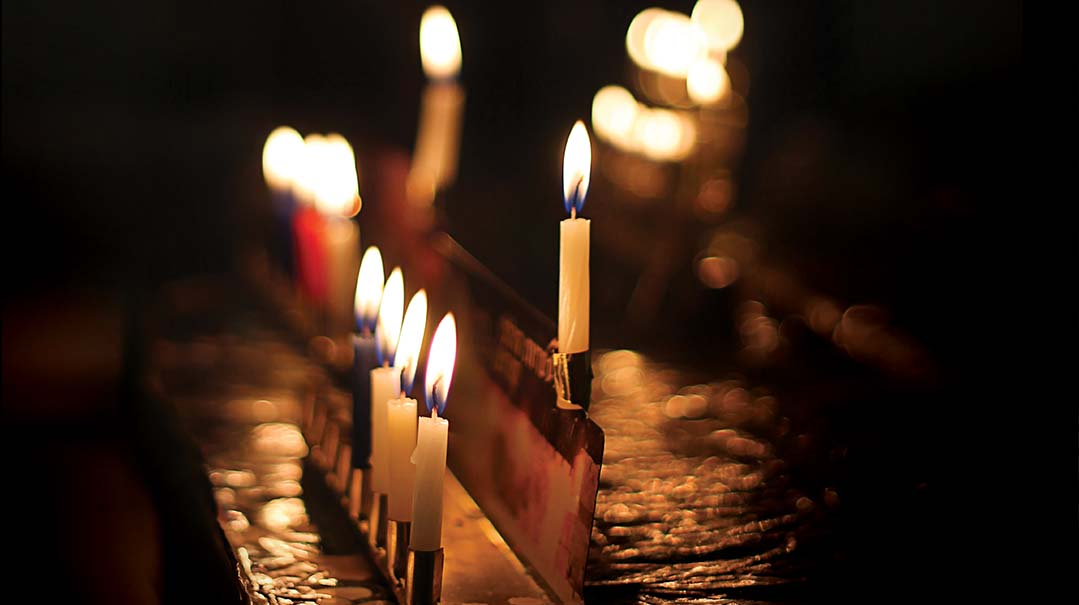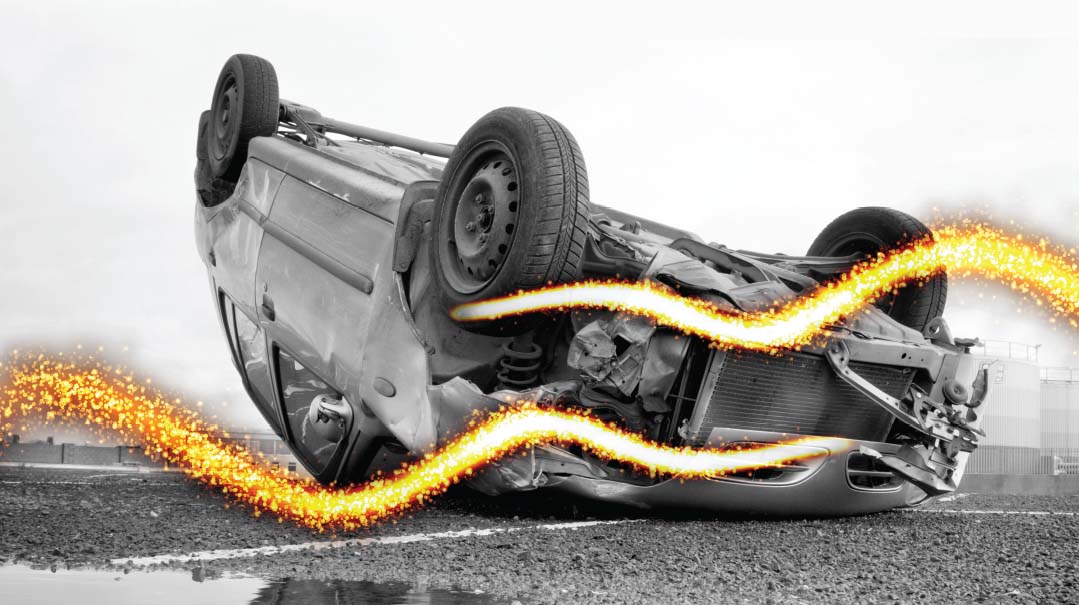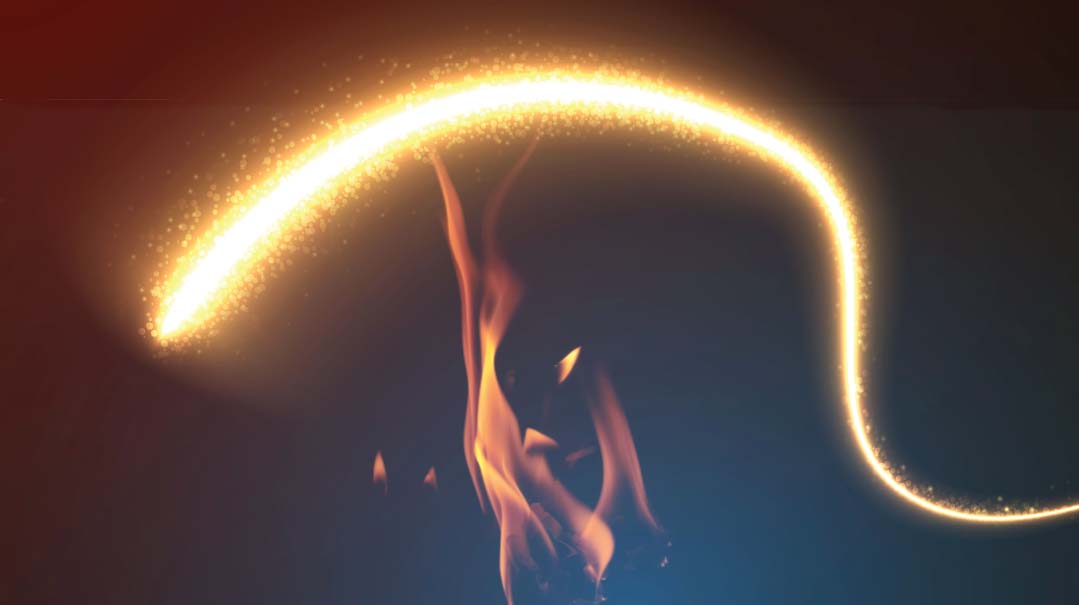On Guard
| November 30, 2021Alight. Five stories of salvation

Miracles surround us. Often, they’re muted and barely noticed. But sometimes, Hashem pulls aside the curtain of nature, and reveals His Hand openly
As told to Michal Trenk
Motty held the sefer Torah in his arms. He looked at the faces of those dancing and singing exuberantly alongside him; young, old, Sephardi, Ashkenazi. They were all looking back at him.
He closed his eyes and took a deep breath, clutching onto the sefer Torah tightly. He reached up to touch the bandage around his neck. He was here to celebrate.
As a little boy growing up in Brooklyn, New York, Motty had heard stories about his grandfather’s days serving in the Israeli army. Though worlds apart from his yeshivah upbringing, he always had a feeling that one day, he would serve in the army, too.
When Motty was ten, his parents fulfilled the family’s life-long dream of making aliyah. From a large, beautiful, newly-renovated home in New York, they found themselves sleeping on thin Israeli mattresses on the floor of their Ramat Beit Shemesh apartment. But they were overwhelmed with gratitude, wide-eyed and fueled by ideals. They were living the dream.
Like many young adults his age, Motty found himself lost in the system. One foot in the American world and one in the Israeli, he began to question more and more of the values he was brought up with.
“I blamed everyone else for any pain I felt. It was my rabbi’s fault, it was my teachers’ fault, it was my friends’ fault,” he says of his situation at age 18. “Everything was my problem, but their fault.
“I reached a point where everyone around me gave up on me, including me. My family was my only source of support, but as a teenager that was insignificant to me. I didn’t even realize how much I was drowning. We’re full of emotions, that’s how Hashem created us. We just sometimes don’t realize how much those emotions are steering us.”
Motti wore a kippah out of respect for his parents, but when they weren’t around, the kippah wasn’t either. He needed something different; he wanted out. The army, he thought, would offer just that. A week later, he was in uniform. His parents didn’t even have time to realize what was happening.
His first day was very intense. Haircuts, fingerprints. Scary, but since he didn’t fully understand what the army experience was, he found it exciting, surreal.
The goal of boot camp, as he quickly found out, is to mentally break you and physically build you. “I needed to have ingrained in me what no one had succeeded in ingraining in me before: that there is such a thing as authority. I wasn’t so strong going in. I had my values from home, but I soon learned that values tend to bend to fit their surroundings,” he explains.
Early one Friday morning on Erev Chanukah, Motty had a gut instinct that something bad was going to happen.
In the West Bank, Friday is infamous for being a day for Palestinian rioting. Motty had just returned to base from an eight-hour night patrol. But immediately upon returning, his unit was told they were being sent to the West Bank.
One of the soldiers climbed the watchtower next to the Palestinian village they were stationed by. He scanned the area — a 360-degree view — and reported that young men were gathering on the hill, covering their faces with ski masks and keffiyehs, gathering rocks the size of basketballs, and preparing slingshots. None of the soldiers uttered what they were thinking: how were they going to defend themselves while bound by so many restrictive rules of engagement?
Motty was assigned to the watchtower. The role of the soldiers in the watchtower is to call for backup if they sense things are getting out of control. But Motty was worried that after an eight-hour night patrol, he’d fall asleep sitting in the watchtower, so he asked his friend if he would swap with him, and he’d go help break up the riot, instead.
The soldiers headed toward the rioters, armed with rubber bullets, flash grenades, and tear gas.
They were severely understaffed. M’atim b’yedei rabbim.
The soldiers in the watchtower called for backup and more units began to arrive. They succeeded in breaking up the riot; almost everyone fled.
They set up a checkpoint at the entrance of the village. It was then that Motty saw a man coming towards the checkpoint. The man wasn’t doing anything suspicious. His hands weren’t in his pockets. He was just walking calmly towards him. But Motty sensed that the man was dangerous.
Motty pointed his gun in the man’s direction and instructed him in Arabic to put his hands up and show him his ID. He approached the man, gun still pointed directly at his face, and took his ID. Walking backwards, not losing sight of him for a moment, he asked a fellow soldier to watch his back so he could check the ID.
To this day, Motty doesn’t know exactly what happened, but as he looked down at the ID, he felt his head shake and a pounding on his helmet. He looked up and saw his friend on the floor, the Arab man stabbing him repeatedly. There was blood everywhere. He reached for his gun, but couldn’t move his arm. He felt weak. There was a warm, wet sensation spreading all over his upper body. Instinctively, he reached up to his neck and felt a hole. He realized he’d also been stabbed.
“I was stabbed!” he yelled. “Terrorist attack!”
The other injured soldier managed to pull out his gun and take out the terrorist. Realizing something was going on, their commander began running toward them. When he got to Motty, Motty collapsed into his arms. The commander quickly put his fingers into the gaping injury in Motty’s neck, just a few millimeters from vital arteries and nerves, to stem the bleeding. That act saved his life.
The wound was six-and-a-half inches long.
“As I lay there, I continued to watch what was happening. But my vision was no longer through my eyes. I didn’t lose consciousness, I was alert and present, but I felt as if I was watching the scene from outside my body.
“I was overcome by a sudden sense that I was being given another chance. Every fiber of my being knew that I wasn’t going to die. Within a few seconds, it felt like my sight was restored to my eyes, and I was once again connected to my body, not observing it from the outside.”
Motty was rushed to an ambulance.
The next thing he remembers is waking up in the hospital. He opened his eyes and looked around at the faces all around him: his mother, his siblings, the medical team. Their red and swollen eyes were now filled with tears of joy and relief.
Motty opened his mouth to speak. “Bring me a pair of Tefillin,” he asked.
Everyone looked at each other with a mix of shock and amazement. “Motty, we can’t…” they said through their tears.
“Why not?” he replied.
“It’s Shabbos, Motty. Shabbos Chanukah.”
The following morning, Motty asked to be taken down to the hospital shul in a wheelchair, so he could recite Bircas Hagomel.
Whispers soon rippled through the shul telling of the miraculous story of the young man in the wheelchair. And so, the men in shul began to dance and sing in hoda’ah. Motty was given a sefer Torah to hold, and he held it tightly, eyes closed.
Chanukah is a time of miracles — a time of light shining through terrifying darkness. Motty felt the light that Chanukah.
He received an honorary discharge from the army and went on to study in yeshivah, slowly rediscovering a world that filled him with meaning and passion. The world he’d almost turned his back on.
Just a few months ago, Motty stood under the chuppah, his family by his side. Peeking out from behind the collar of his kittel was a scar on his neck, one that will stay with him forever, as a reminder of the miracle that lit up his life.
(Originally featured in Family First, Issue 770)
Oops! We could not locate your form.






